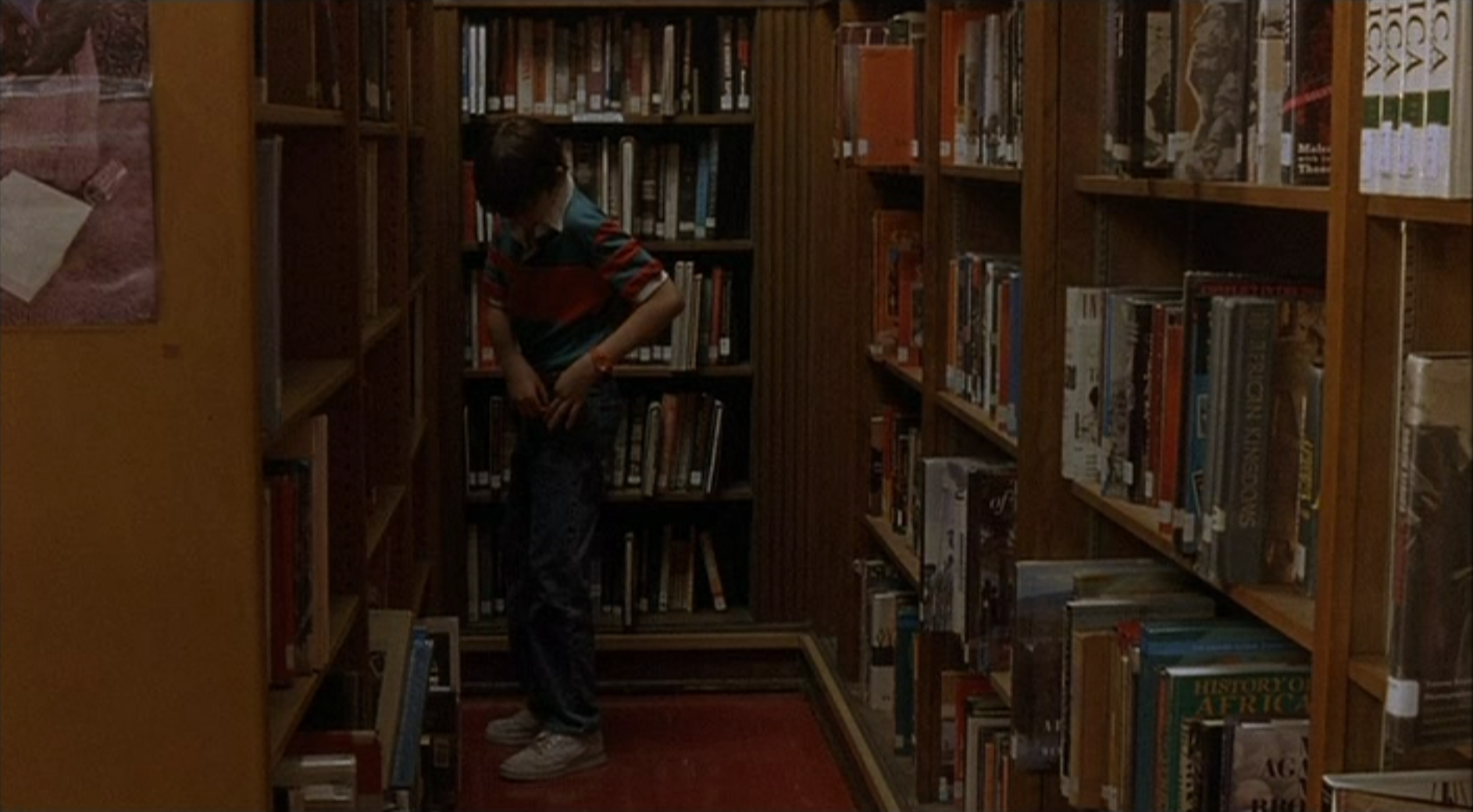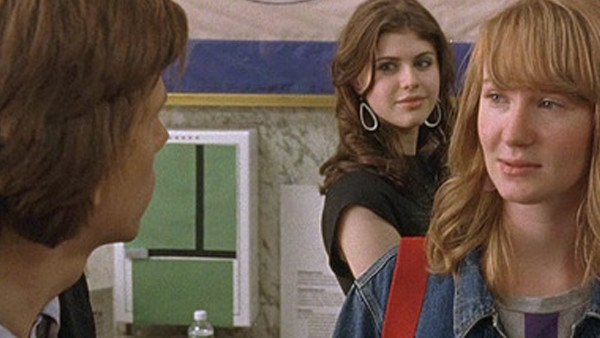just rewatched
the squid and the whale so here are some rambling thoughts on it:

i first watched it in august of this year and subsequently decided to go through the entire baumbach filmography chronologically (i had only seen three others previously), but i loved it even more this time now that i have appropriate context for it. i think it's his most fascinating and poignant film. it feels like an intensely personal work, knowing that he was walt's age living in brooklyn in 1986 when his writer parents got divorced (interestingly he writes his analogue character as the more unsympathetic of the two kids). he visually establishes the central conflict in the very first scene, mom and frank on one side of the court against dad and walt on the other in a competitive game of tennis, and the interplay in this scene sets up all the character dynamics we'll see play out throughout the film. the whole movie is filled with witty little moments that serve as clever elucidations on the characters' personality, e.g. walt calling
the metamorphisis "kafkaesque" or the dad pleading "it's no fun for me if you don't try" while playing ping pong with frank. every single line is revealing and there's not a wasted moment. i recall reading something that said something to the effect of "baumbach's central characters are typically defined by an acute awareness of their stage in life," which is certainly true of the father, but the children are perhaps one of the only exceptions to that rule. they're characterized by a certain naiveté about the true nature of life, and are thus ill-equipped to handle the world when their stabilizing family unit dissolves, although it had clearly not been particularly stable for quite some time. a film about the effect of divorce on children almost can't help but deal with very freudian themes and baumbach leans into it, not only in the way the children are forced to see their mother as a sexual being, but in the psychological hold the parents can't help but exert over the kids just by the nature of their relationship (
this piece is worth reading). walt absorbs every opinion his father espouses and parrots them as his own, including his causally misogynistic views towards women, while frank seems to be left unable to process his emotions over his parents' split, and sometimes all you can do is jerk off in a library. the father is i think one of baumbach's most interesting characters, and this rewatch made me realize that this is jeff daniel's best performance. baumbach is the preeminent chronicler of the insecure masculinity of the intellectual, and in the end it's clear that bernard's intellectualism is just as superficial as any philistine, rendered even more meaningless when refracted through his son. he's a massive pr*ck with unbelievably high self-regard, but daniels occasionally allows a deep insecurity to slip out from under his veneer of pretension, his inflated self-regard coexisting on his face and in his voice with a contradictory fear of inadequacy. this insecurity seems to go unnoticed by walt until that remarkable shot reverse shot of their eyes meeting as they look for the cat under the car, and in that moment it becomes clear he'll never see his father the same way again. as walt's image of his father, the man on whom he's based his identity, is shattered, so is his own self-image, which leads to my favorite exchange in the movie:
-"i don't see myself this way."
-"well this is how it is."
walt is the only character who is given any sort of redemption arc, as he is finally able to achieve some sort of emotional maturity and hopefully start on a path of forming his own set of values, independent from his father.
also, there's a peculiar tension in every scene and i think that's largely because of baumbach's willingness to end his scenes abruptly out of a refusal to allow any moment to linger. the whole movie is just blow after blow, devastating remark followed by cut straight into awkward scene, no sense of catharasis in sight. it's basically if you peeled away all of the whimsy from a wes anderson film and were just left with his broken characters for 80 minutes. he's
talked about how he wanted to shoot it almost like an action film, going from scene to scene with no establishing shots or extraneous diversions, except in place of physical combat we have arguably more-intense verbal sparring. the movie is almost entirely comprised of conversations, yet baumbach's dynamic style of staging and shooting dialogue gives every scene a strong sense of rhythm. it's not really until the final scene where we are allowed to take a breath and fully take in what we are seeing, and even that is but a fleeting moment before the credits take over. i'll admit that i didn't pick up on the metaphor of the titular squid and the whale the first time i watched it, even though it seems obvious in retrospect, but it functions beautifully on either level.
re: it not feeling like the 80s, i think it's an effective recreation of 1986 brooklyn (as far as i can tell. i wasn't alive). it's not trying to be stranger things nostalgia bait and it would be terrible if it was. baumbach is merely setting it in the social milieu in which he underwent this same experience and thus can most authentically portray it; the cultural and technological signifiers it gives us are more than enough, and the 16mm holds it all together.




 ), so hopefully I still have the mental energy by the time I get home haha.
), so hopefully I still have the mental energy by the time I get home haha.

 but The Music Man isn't the kind of movie that needs deep in-depth analysis anyway...so maybe, just maybe, I'll keep this short
but The Music Man isn't the kind of movie that needs deep in-depth analysis anyway...so maybe, just maybe, I'll keep this short
 just call me The Movie Man and that spells trouble!
just call me The Movie Man and that spells trouble!